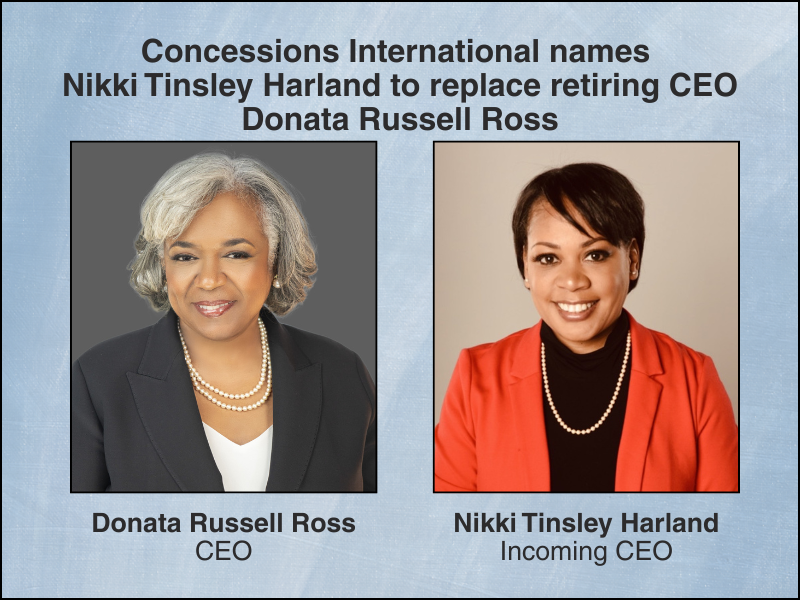By Stacey Key, president
and CEO, Georgia Minority Supplier Development Council
[Editor’s note: Reprinted
with permission from the Georgia Minority Supplier Development Council]
In a 2020 opinion piece
published by the Atlanta Business Chronicle, Georgia Minority Supplier
Development Council President and CEO Stacey Key issued a challenge to the
business community to effect real change in light of America’s issues with
race, class and economic equity. This is a continuation of that dialogue.
The American business
community landscape is different now. In the aftermath of protests and civil
unrest demanding a reckoning with her past transgressions, the United States of
America may never have been more divided.
Political rancor, partisan
divisions and adversarial confrontation are the norm in this moment, as the
nation transitions into a new administration and seeks to emerge from an
economic slump brought on by the Covid-19 pandemic. The question with which I
closed my last message is still on the floor … What are you prepared to do?
The confluence of an
unprecedented group of factors — a global health pandemic, a subsequent
economic contraction and widespread unrest due to police violence and racial
tension — has brought America to a different kind of crossroads. The history of
this great nation includes many critical moments, where leaders were faced with
urgent and consequential decisions about who we wanted to be, what our role was
in the world and how we wanted to conduct ourselves as a nation. But America
has not been this divided since the devastating war that took 600,000 lives
some 160 years ago. The specter of America’s long-running struggle with issues
of race, class, gender and equal opportunity still hangs over us like a cloud,
and it is time for that to change.
There is a tremendous
energy in the business community today about stepping up and being the change
in our communities. Corporations and foundations are donating and earmarking
unprecedented amounts of funding for diversity, equity, inclusion and access
initiatives. These range from diversifying boards of directors and
fast-tracking diverse candidates for senior leadership, to supplier diversity
programs and “blind” HR recruiting strategies that mask a candidate’s personal
details to eliminate biases in the screening process.
Funds and foundations have
been created with hundreds of millions of corporate dollars set aside to show
their meaningful intentions. While all of that is good and represents progress,
I submit to you that the rubber has not yet fully met the road. It is time for
us to translate all of the visible goodwill, statements of core values,
creation of diversity committees and donations into legitimate economic impact
— loans, grants, bids, contracts, jobs, revenues, community development and
generational wealth.
As an advocate for
minority business development and a woman in business, I am keenly aware that
the key to survival and the most important resource we can provide to an
emerging business is an opportunity, an honest chance to do great work and be
paid for it. I suggest we get down to the hard work of transforming our
business climate and supercharging our economy by putting small business to
work:
Corporations must do more
now than publish nominal supplier diversity goals that can be easily achieved
in the normal course of business. Given the historical inequities, it is past
time for us to stretch ourselves and make the utilization of diverse suppliers
the priority.
Supply chain entities must
look deep into their decision-making processes to ensure diverse candidates are
not just in the room but seated at the table of opportunity. It is a moral
obligation for a company that receives revenue from a broad spectrum of
customers to rededicate to the concept of doing business with those cultures
and communities who do business with them.
Donations cannot be
considered a substitute for legitimate economic action that opens doors and
levels the playing field. Diverse companies are more than capable of doing any
task or fulfilling any requirement — what is needed is the courage to consider
them on an equal footing with other suppliers. They will exceed expectations if
allowed into the game.
Each of the funds and
foundations corporate America has established in response to the events of the
past year must make an action plan for how those dollars are to be used to
catalyze business development and real opportunity. A symposium, conference or
workshop is nice, but the trail of information must lead to a legitimate
opportunity to compete.
Community impact efforts
must be targeted to activities that improve the actual quality of life where
people live, work and play. Too many project plans have nominal community
outreach or economic development goals that result in very little real action
or investment.
Cities and counties must
do a better job of looking after the interests of communities — often made up
of poor and/or minority residents — that are targeted for the development of
stadiums, convention centers, office buildings and shopping districts. Jobs and
opportunities for local suppliers must play a bigger role or the project should
not go forward.
State and local
governments must lead the charge in the utilization of diverse suppliers in
their own supply chains. Too many entities, including my own home state of
Georgia, do not do enough to engage all of their citizens, even though they
serve and collect taxes from everyone. Some governments have diverse supplier
participation numbers in the single digits, percentage-wise, even though their
populations are 30% to 50% diverse cultures.
Much has been said about
the reckoning that America is undergoing in light of all of these recent
developments. The fact that Covid-19 has had a disproportionate impact on
communities of color and poor people is rooted in institutional neglect and
community attitudes, not medical realities.
The American creed
declares that all men are created equal and endowed by their Creator with
certain unalienable rights. The time for her to live up to those aspirational
words is now, and the tool for the establishment of true equity in our nation
is the U.S. economy. I am fighting daily to put food on American tables and
funds into American pockets. Will you join me in this fight?
To learn more about
Georgia Minority Supplier Development Council, visit gmsdc.org.





